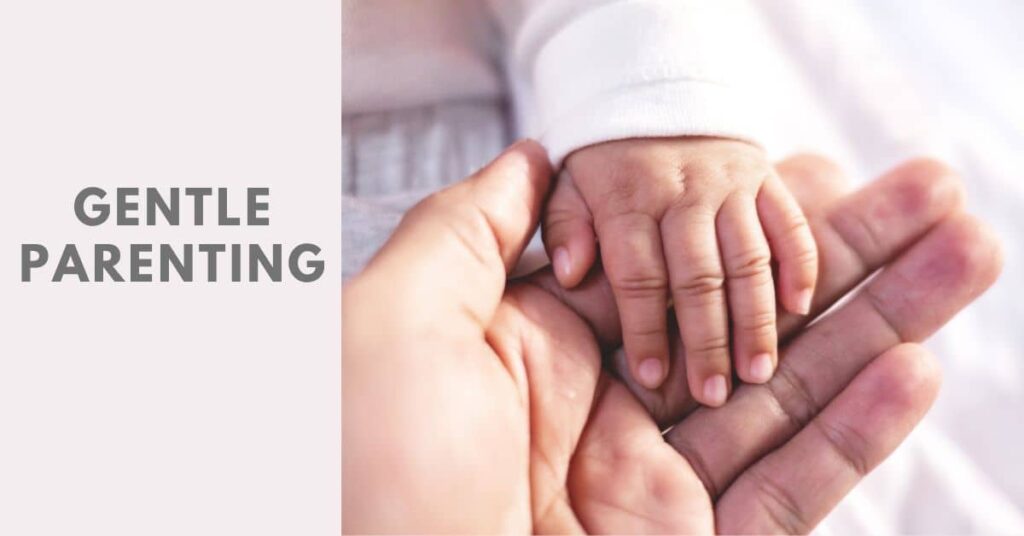Co-parenting after a divorce or separation can be challenging in the
best of circumstances. Unfortunately, harassment by a co-parent creates
an unsafe environment for the target parent and children. Understanding
what constitutes harassment, its serious impact on families, and the
resources available for protection and prevention is critical.
This article provides an in-depth look at co-parent harassment,
including signs to watch for, effects on well-being, legal perspective,
and strategies for handling this difficult situation healthily.
Defining Harassment in the Co-Parenting Relationship
Co-parent harassment refers to a pattern of behaviors by one parent
intended to manipulate, threaten, control, or otherwise psychologically
distress the other parent. These behaviors violate boundaries and make
co-parenting a hostile environment. Harassment comes in many forms,
including:
Verbal harassment: Yelling, name-calling, making threats, leaving
harassing phone calls or messages. This includes in-person verbal abuse
and harassing communication through phone calls, texts, social media,
and other written means.Physical harassment: Any unwanted physical contact, violence, or
property damage. This includes hitting, slapping, pushing, stalking, or
vandalizing a car or home.Emotional harassment: Manipulating, controlling, or psychologically
distressing behaviors. This includes tactics like stalking, isolation
from friends/family, withholding affection, and parental alienation
(manipulating the child against the other parent).Sexual harassment: Making unwanted sexual advances, inappropriate
touching, sending explicit messages or images, etc. Any behavior that
makes the target parent feel uncomfortable or violated sexually.Financial harassment: Withholding or restricting money and financial
resources to control or distress the other parent. Interfering with
their ability to earn or spend money.
Inappropriate co-parenting while in a relationship
Inappropriate co-parenting behaviors can start even when parents are still in a relationship. This includes interfering with the other parent’s ability to care for the child, undermining their parenting, constant criticism, and arguments in front of the child. Addressing inappropriate co-parenting early is important to prevent escalation after separation.
Co-parent harassing messages
Written communication like texts, emails, and social media messages can be a common form of harassment. Threatening, insulting, and manipulating messages create a hostile environment. Setting boundaries and recording this contact is important.
Co-parent bullying
Repeated belittling, criticism, and insults by a co-parent can constitute emotional bullying. Like childhood bullying, this can severely damage well-being and self-esteem over time. Seeking counseling support may help cope with this form of abuse.
Signs of a toxic co-parent
Toxic co-parent behaviors include violence, verbal abuse, threats, stalking, extreme manipulation of the children, and other acts that make the target parent fearful. Legal intervention may be required in cases of severe toxicity.
Specific examples of co-parent harassment include:
Repeated, threatening or angry phone calls, emails, or texts
Uninvited and unwanted visits to your home, workplace, or child’s
school/eventsPhysically assaulting you or damaging your property
Posting threatening or defamatory messages about you on social media
Spreading lies and rumors about you to your child, family, friends,
or communityManipulating and alienating your child against you through
psychological meansConstantly threatening to take you to court or file for custody as
a means of controlPurposefully withholding important information about your child’s
health, safety or needsMaking you feel fearful for your safety in a situation where contact
can’t be avoided
Co-parent harassment can have a devastating impact on both parents and
children. Recognizing the signs and protecting yourself and your family
through legal and psychological means is critical.
The Serious Effects of Co-Parent Harassment
For the target parent, co-parent harassment causes severe anxiety,
distress, and damaged well-being. Chronic harassment over time can lead
to more severe mental health issues like depression, PTSD, and problems
maintaining healthy relationships. When a co-parent’s behavior feels
threatening or makes you fearful, it damages your sense of safety and
security. This is supported by research on the Effects of Parental
Alienation on Children.
For children, witnessing or being subjected to harassment by one parent
against the other can be extremely traumatic. It creates an environment
of fear, conflict, and psychological manipulation that children are
particularly sensitive to. Potential long-term effects on children
include:
Anxiety, low self-esteem, and poor social development
Disrupted concentration and performance in school
Emotional and behavioral problems
Difficulty forming healthy relationships in adulthood
Post-traumatic stress disorder (PTSD) in severe cases of chronic
abuseParental alienation, where the child is manipulated to turn against
the target parent
These impacts underscore the severity of co-parent harassment and the
importance of intervention. No parent or child should feel unsafe or
psychologically violated in their family environment or relationship.
Understanding the Legal Perspective on Co-Parent Harassment
Most states have laws against harassment, stalking, and domestic
violence that apply to co-parents and guardians. Examples include:
Harassment/stalking laws: Generally prohibit any behavior intended
to harass, annoy, threaten or intimidate another person. A pattern
of such behavior or a single threatening incident may constitute
harassment by a co-parent.Domestic violence laws: Apply to current or former intimate
partners, including those with children in common. Co-parent
harassment, including threats, physical harm, or psychological
manipulation, may qualify as domestic violence.Child endangerment laws: Intentionally putting a child in a
dangerous situation through violence, abuse, neglect or other
harmful actions. Severe co-parent harassment or parental
alienation designed to distress a child could be considered child
endangerment.
Law against mental harassment by parents
Many states also have laws specifically prohibiting emotional, psychological or mental abuse of a child by a parent or guardian. Chronic emotional harassment or manipulation of a child may violate these laws.
Reference: Understanding the Legal Perspective on Co-Parent Harassment.
If faced with co-parent harassment, the target parent has legal options
to consider, including:
Filing for a restraining order. A restraining or protection order
legally compels the harassing parent to stop abusing, threatening
or contacting you. It can prevent them from coming near your home
and workplace.Modifying custody and visitation. In cases of ongoing harassment, a
court may limit the harassing parent’s custody and visitation to
protect the children. If severe enough, sole legal and physical
custody may be awarded to the target parent.Pursuing criminal charges. Particularly for cases involving physical
violence, stalking, property damage or threats of harm, the
harassing parent may face legal prosecution and jail time.Reporting incidents to police. Even if charges are not filed
immediately, reporting a threatening incident to the police
establishes an official record of the event. Multiple reports over
time can strengthen a case for other legal actions.
While laws vary in each state, most consider behavior that causes a
reasonable person to feel fearful or distressed as harassment. A single
severe threatening or violent incident may also warrant legal
intervention. Consulting with a family law attorney to understand your
rights in your state is advisable.
How do you deal with a bad co-parent?
Some tips for dealing with a difficult co-parent include:
Set clear boundaries around their inappropriate behavior. Communicate through legal counsel if needed.
Document all issues and communication. This creates a record if legal action becomes necessary.
Speak to a counselor about coping strategies and stress management. Seek support through friends, family or support groups.
Use a co-parenting app to limit direct contact. Only discuss essential child-related matters.
Focus on your child’s well-being and model healthy behavior. Avoid drama or retaliation.
If they become threatening, contact the proper authorities immediately. Your safety comes first.
Set clear boundaries and limits. Communicate in writing and verbally
that their harassing behavior must stop immediately. Be specific in
describing acts of harassment and your limits around communication and
contact. Consult a lawyer or mediator if needed.
Do not retaliate or engage in hostility. As difficult as it may be,
remain calm and civil. Do not harass, threaten or yell at your co-parent
in return. This will only worsen the conflict, endanger you further and
hurt your credibility if legal action must be taken.
Keep thorough records. Save and document all harassing communication,
including written messages, call logs, video/audio recordings and
details of in-person incidents with dates and times. Keep these records
organized and recorded in case you need them as evidence.
Contact local authorities if you feel unsafe. Don’t hesitate to call 911
in the event of violence or threats of physical harm. Explain your
situation, have your records on hand, and see if emergency restraints or
charges are appropriate. Ask about pursuing a restraining order to
prevent further contact with the harassing parent.
Seek legal counsel and advocacy support. Speaking with a family law
attorney can help you understand your options for increasing safety and
limiting harassment according to the laws in your state. Victim advocate
groups can also provide counseling and help connect you with resources.
Please keep your child safe and get them counseling. While documenting
incidents involving your child, avoid questioning them excessively.
Reassure your child of their safety and your support. Seek counseling or
trauma therapy if needed to minimize long-term distress.
Consider using a co-parenting communication service. Tools like Talking
Parents and WeParent provide monitored communication channels for
updates and record-keeping. They limit direct contact, which can reduce
opportunities for harassment. Only communicate through monitored means
as much as possible.
Make a safety plan. Work with local authorities, a counselor, and victim
support groups to develop a personalized safety plan. Plan how to
respond in an emergency, how to limit risks, how to keep records, and
how to emotionally cope during the process. A safety plan can reduce
fear and give you steps to take control of the situation.
While dealing with co-parent harassment is never easy, there are actions
you can take to protect yourself and limit the impact on your children.
Understanding your legal rights, leveraging resources for support and
safety planning, and refusing to engage in harassment or hostility
yourself is critical. Many people and groups can advocate for you as you
work to create a healthier environment for your family.
Conclusion
Co-parent harassment creates an unacceptable environment for parents and
children, causing severe distress and psychological harm. Recognizing
the signs of harassment and taking it seriously is the first step to
empowerment. Setting boundaries, documenting abuse, getting legal and
advocacy counsel, and ensuring safety are all ways target parents can
limit manipulation and take back control. No one deserves to feel
fearful or threatened in their co-parenting relationship or family
situation. With the right resources and support, co-parent harassment
can be addressed and healthy dynamics restored. Refusing to tolerate
abuse builds a better future for your children and yourself.
FAQ
What is inappropriate co-parenting?
Inappropriate co-parenting refers to behavior by one or both parents
that are harmful, manipulative or undermines the well-being of the
children. Examples include constant fighting and arguing in front of the
kids, withholding affection or contact to distress the other parent,
interfering with school or medical care, etc. Inappropriate co-parenting
creates an unhealthy environment for children.
What is a controlling co-parent?
A controlling co-parent exhibits manipulative, intimidating or
domineering behavior over the other parent. They may make unreasonable
demands, restrict contact with the children, micromanage parenting time,
threaten legal action frequently, or use other means to maintain power
over the other parent. A controlling co-parent creates conflict and an
imbalance of power in the co-parenting relationship.
What is a manipulative co-parent?
A manipulative co-parent will use lies, guilt trips, threats and other psychological tactics to control the target parent. Their manipulation often centers around the children. Being aware of manipulation methods can help address this unhealthy dynamic.
What to do when a co-parent is manipulating your child?
Some tips for dealing with a manipulative co-parent include:
Listen to your child without being critical of the other parent. Let them share their feelings.
Reassure your child and help them feel confident to be themselves.
Set boundaries around manipulating behavior if safe. Seek counseling or legal advice if needed.
Be a positive role model through your own behaviors with the child.
Document any concerning incidents or statements from the child.
Focus on creating a loving, stable environment when the child is with you.
Can you lose custody for not co-parenting?
In some cases, refusal to co-parent can be grounds for losing custody or
visitation rights. However, it depends on the specifics of the
situation:
If one parent deliberately interferes with the other parent’s
ability to co-parent, it may warrant a change in custody, especially
if it’s harming the children.If lack of co-parenting is due to safety concerns like abuse or
threats, it may not justify loss of custody. The concerns would need
to be addressed first.If both parents refuse to co-parent willingly, causing conflict and
harm, a court may order interventions like counseling, coordination
or custody changes.Courts will make determinations based on the child’s best interests.
While co-parenting is ideal, reluctance or inability alone won’t lead
to loss of custody – evidence of harm is required.Consulting a family law attorney can help understand your risks and
options if children’s safety or well-being are concerns.
What constitutes harassment by an ex-spouse?
Behaviors by an ex-spouse that may constitute harassment include:
- Repeated unwanted calls, emails, texts that are threatening,
insulting or controlling - Showing up uninvited at your home, workplace or other locations
- Damaging your property or belongings
- Spreading false rumors about you to others
- Threats of violence or actual physical violence
- Stalking behaviors such as following you or monitoring you
- Sexual comments, actions or advances that make you uncomfortable
A pattern of these behaviors or a single severe incident could be considered harassment and grounds for a restraining order.
What can I do about my child’s father harassing me?
Some options if facing harassment from your child’s father include:
- Document all incidents and communication in detail. This creates a record.
- File for a restraining order or protection order in court.
- Speak to a lawyer about custody changes or other legal remedies.
- Contact the police if you ever feel unsafe.
- Limit contact through a monitored co-parenting app.
- Seek counseling support for yourself and your child.
- Develop a personalized safety plan for you and your child.
- Consider relocating if stalking or safety risks warrant it.
- Ask family/friends to intervene and speak to him if appropriate.
How to stop a parent from harassing you
Some tips to stop harassment from a parent include:
- Set clear boundaries and communicate firmly that behavior must cease.
- Limit contact through monitored channels like a co-parenting app.
- Document all incidents thoroughly as evidence.
- Explore legal options like restraining orders.
- Involve authorities like the police if you ever feel unsafe.
- Seek counseling to cope with emotional impacts.
- Ask other family members or friends to intervene if appropriate.
- Focus on your own mental health and do not retaliate or engage.
Is asking for child support harassment?
No, requesting child support is not harassment when done reasonably. Child support is a legal right of the child. Harassment involves threatening, abusive or manipulative requests made intentionally to control, harm or distress the other parent beyond child support needs. However, repeated requests to modify child support should go through proper legal channels, not demands directly to the other parent.
What can you do if your co-parent is harassing you?
If one parent is engaging in harassing behavior towards your child, some steps to take include:
- Documenting details of any incidents that occur.
- Speaking with your child’s pediatrician, counselor or other trusted adults who can intervene.
- Contacting child protective services if the harassment involves abuse or putting your child’s safety at risk.
- Exploring legal options like custody changes, restraining orders or supervision requirements.
- Seeking therapy for your child to process the harassment in a healthy way.
- Filing a police report if threats or violence are involved.
- Limiting contact between your child and the harassing parent if needed.
- Reassuring your child that you believe them and will keep them safe.
Inappropriate co-parenting
Inappropriate co-parenting involves behaviors by one or both parents that undermine the child’s well-being such as:
- Excessive arguing or hostility in front of the child.
- Making the child “choose sides” in the conflict.
- Withholding visitation or affection from the child to hurt the other parent.
- Interfering with the child’s schooling, activities or medical care.
- Badmouthing the other parent excessively.
- Using the child as a messenger or spy.
If inappropriate co-parenting is occurring, some options include:
Having a frank discussion about the harmful impacts on the child and the need to change behaviors.
Attending co-parenting counseling to learn healthy strategies.
Using a comprehensive co-parenting plan to establish boundaries.
Involving a mediator if conflicts persist.
Exploring legal options like custody evaluation or modifications if the behaviors severely impact the child.
Joining a support group to help cope with the challenges.
Talking to the child’s doctor, counselor or school about interventions and support.
Focusing on providing stability, minimizing conflict and meeting the child’s needs when they are with you.
Documenting issues thoroughly in case further legal action becomes necessary.
Seeking your own counseling to manage the emotional toll.
With commitment and resources, inappropriate co-parenting patterns can often be overcome in the best interests of the child. But recognizing when behaviors have become chronic or damaging is important to address the situation constructively.
What is parental harassment?
Parental harassment refers to a pattern of inappropriate behaviors by a parent towards their child that intentionally causes distress and impairs well-being. This can include:
- Repeated insults, criticism, or belittling of the child.
- Threatening violence, and intimidating behaviors.
- Isolating or restricting activities/friends as punishment.
- Stalking or monitoring the child’s communications and activities.
- Violating privacy boundaries.
- Making the child fear angering or disappointing the parent.
- Parentification – expecting the child to take on parental duties.
- Any behaviors that undermine the child’s mental health and development.
Parental harassment normally requires professional interventions like counseling, education, and family services to overcome. In severe cases of abuse, legal remedies may become necessary as well. The effects can be very damaging if left unaddressed.
How to stop a parent from harassing you
Some suggestions for stopping harassment from a parent include:
Communicate clearly that the behavior is inappropriate and must cease. Consider involving a mediator.
Limit contact through monitored channels like a co-parenting app. Avoid in-person interactions if possible.
Set firm boundaries with consequences. Follow through consistently.
Document all incidents thoroughly as evidence in case legal help becomes necessary.
Explore legal options like restraining orders or custody changes if harassment involves threats, stalking or violence.
Contact the police if you ever feel unsafe. Move away if needed to increase distance.
Seek professional counseling to process the emotional impact and establish healthy coping strategies.
Ask other family members or friends to intervene and speak to the harassing parent if appropriate.
Focus on your own mental health. Do not retaliate or sink to their level.
Accept you cannot control their behaviors, only how you respond. Disengage from drama and hostility.
Develop a personalized safety plan to empower yourself and minimize risks.
With firm boundaries, legal protections if necessary, and counseling support, you can take back control from a harassing parent over time. But always prioritize your emotional and physical safety first and foremost.

I’m Mithun Debnath, a dedicated dad and the founder of Papa Parenting. I’m here to share my parenting journey, tips, and insights to make your life as a parent a little easier. Join me as we navigate the adventures of fatherhood together.






